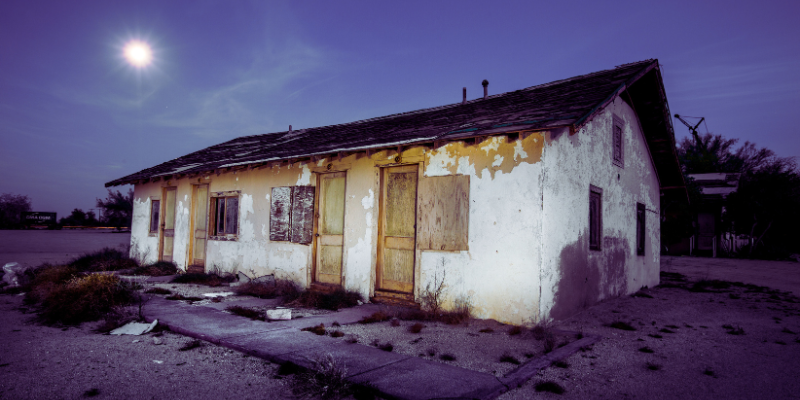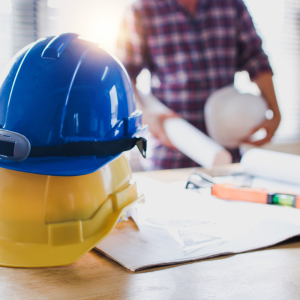
Government Policies on Urban Development and Housing Safety
In Irving, TX, government policies on urban development and housing safety are designed to ensure that condemned houses and other residential properties meet stringent safety standards and property regulations. These guidelines are part of a broader effort to encourage sustainable urban growth while protecting the character and stability of neighborhoods.
The city enforces strict building codes that determine construction quality and structural strength, helping prevent homes from slipping into neglect. Alongside this, zoning laws guide development patterns to ensure that new projects align with community plans and don’t overwhelm existing infrastructure.
Regular housing inspections check compliance with health, safety, and environmental rules, safeguarding residents from hazards tied to deteriorating buildings. The city also partners with developers and property owners to support redevelopment efforts, turning neglected areas into thriving neighborhoods that boost livability and community pride.
Through these efforts, Irving works to balance growth with the preservation of housing quality and public safety.
Understanding Building Codes and Zoning Laws in Texas Cities
Understanding building codes and zoning laws is essential when dealing with condemned houses and property standards in Irving, TX. In cities across Texas, building codes exist to protect public health, safety, and welfare by regulating how construction should be carried out.
These codes outline minimum requirements for structure, wiring, plumbing, ventilation, and fire prevention. Meanwhile, zoning laws control how land can be used, shaping whether areas are residential, commercial, or industrial.
These rules help keep things running smoothly in Irving and protect property values by stopping land from being used for things that don’t belong there. Zoning laws tell property owners how tall their buildings can be, how far away they can be from other buildings, and what kinds of improvements they can do.
Adhering to local codes and zoning regulations not only prevents legal issues but also ensures homes align with community standards. For homeowners facing condemned properties, understanding these requirements is key to staying compliant with Irving’s urban planning goals—and can even make it easier to sell your house fast in Irving.
Legal Requirements for Condemned Properties in Texas

In Texas, properties that have been seized are governed by both state laws and city rules, such as those in Irving. A house can be condemned if it’s not safe for people to live in because of major building problems, health code violations, or other safety issues.
In Irving, the Code Enforcement Department handles these evaluations, checking whether buildings meet city and state requirements. Homeowners must follow strict guidelines to correct violations; failing to do so can result in fines or even demolition orders.
The first step in the process is usually a check to make sure the house meets basic standards for living in. If problems are found, the city sends out a warning that says they need to be fixed by a certain date.
Property owners can appeal these decisions in administrative hearings but need to show proof of repairs or ongoing work. Knowing the legal framework is essential for Irving homeowners to avoid penalties and stay aligned with building safety standards.
Key Factors Leading to a House Being Condemned
In Irving, TX, several critical factors can lead to a home being condemned, usually tied to health or safety risks. One of the most common issues is compromised structural integrity—when a foundation, roof, or walls deteriorate so severely that the building becomes unsafe for occupants.
Violations of building codes and property standards are another reason, such as outdated electrical systems, failing plumbing, or unsanitary conditions. Mold growth and pest infestations also place residents at risk and can push a property toward condemnation.
Homes that have been ignored or left empty often become targets for crime or pose risks to the community as a whole, which makes them ideal for inspection. In order to keep these things from happening, the city of Irving actively inspects buildings and makes sure they are following the rules before issuing condemnation orders.
Common Violations That Lead to Condemnation in Texas Homes
For homeowners in Irving, TX, recognizing the common violations that lead to condemnation is vital. Structural weaknesses are a leading issue, including unstable foundations and damaged roofs that pose risks to residents.
Electrical safety is one of the biggest concerns for older homes. Outdated wiring or faulty systems can spark fires and lead to dangerous situations. Plumbing issues—like leaking pipes or broken garbage disposals—not only damage the property but also create unhealthy living conditions by encouraging mold growth.
Unclean environments, pest infestations, and waste buildup can also push a home toward condemnation. To stay livable, every house must meet property codes and safety standards.
When repairs are neglected, homes quickly fall apart, and the city may declare them unsafe until costly renovations are made. That’s where we step in—we buy houses in Texas, even ones that need major repairs, so homeowners don’t have to deal with the stress of fixing everything themselves.
Safety Standards for Housing: Preventing Condemnation Issues

In Irving, TX, adhering to safety standards is the best way to avoid property condemnation. Homeowners must ensure their properties comply with the city’s health and building regulations.
It is important to do regular maintenance on roofs, foundations, and water systems. To avoid fire risks or power outages, electrical lines should be kept up to date and free of any potential dangers.
Proper waste disposal, pest control, and sanitation practices ensure a healthy indoor environment. Good ventilation and heating help maintain air quality and protect against health risks.
It is just as important to take care of leaks, mold, or water damage right away to stop more damage to the structure. Irving residents can keep their homes in good shape and meet the city’s strict housing standards by making repairs and checks on time.
Essential Inspections Before Purchasing Older Homes in Texas
Before buying an older home in Irving, TX, scheduling detailed inspections is critical to avoid costly surprises. These checks often reveal structural issues, such as foundation settling or roof deterioration, that aren’t immediately visible.
Also, the water and electrical systems need to be checked to make sure they follow the latest safety rules. People who are buying old homes should be on the lookout for mold, asbestos, and other secret dangers.
Local building codes and zoning laws also dictate what changes can be made to older homes. Working with a certified inspector familiar with Texas housing standards provides the best insight into necessary repairs or upgrades.
Thorough evaluations protect buyers from hidden risks and ensure the investment aligns with both personal goals, Irving’s housing regulations, and the Cost to Rewire a House in Irving TX when planning upgrades.
Financial Implications of Having a Home Condemned in Texas
When a house in Irving, TX is condemned, the costs can be too much to handle. Homes that don’t follow the rules for housing often need a lot of fixes, which costs a lot more than regular maintenance.
Homeowners may face steep fines and penalties for failing to comply with safety codes, and these can quickly build up if problems aren’t fixed. Losing rental income adds to the financial strain if tenants are forced to vacate.
Legal fees can quickly add up if property owners choose to appeal disapproval decisions or face regulatory challenges. On top of that, bringing a property up to code often requires costly repairs or modifications. Lenders also tend to view condemned properties as high-risk, making it much harder to secure financing or favorable loan terms.
That’s why being aware of these financial risks is critical for Irving homeowners dealing with potential condemnation. The good news is, Southern Hills Home Buyers buys houses for cash in any condition or situation—helping you avoid the stress, expenses, and uncertainty of repairs or approvals. Call us today to learn more.
Real Estate Market Impact on Properties at Risk of Being Condemned
In Irving, TX, the real estate market plays a major role in how condemned or at-risk properties are managed. With growing demand for housing, the pressure to maintain properties in line with city codes has increased. Homes that fall short of standards not only face condemnation but also lose market appeal.
Code enforcement usually gets tighter as property values rise to protect neighborhoods and keep things looking nice. This means that buyers need to pay close attention to maintenance and compliance to avoid losing money.
Market fluctuations can magnify risks—when property values climb, neglected homes are more likely to be targeted for inspection and enforcement. Staying compliant with Irving’s codes isn’t just about safety—it’s also about preserving long-term property value in a competitive market.
The Role of Local Authorities in Property Condemnation Cases
Local governments in Irving, TX, make the main decision about when a building is not safe for people to live in. The Code Enforcement Department of the city checks homes to see if they meet basic building standards.
The owners of homes that have been found to be in violation are sent letters that explain what needs to be fixed to make the home legal again. The city can officially say that the property is unfit for people to live on if the owners don’t do anything.
This process often involves input from health officials and fire safety inspectors, ensuring public health and safety are fully considered. Through strict enforcement, Irving works to protect its residents while guiding owners toward maintaining livable housing.
Understanding Condemned Property Regulations in Irving, TX

In Irving, TX, it’s important for both owners and possible buyers to know the rules about condemned property. A house can be condemned if it doesn’t follow building rules or if it’s damaged or neglected in a way that puts people’s health and safety at risk.
The city requires owners of such homes to either repair or demolish the property within a specified timeframe. Failure to comply can lead to penalties, liens, or even legal action.
Regular checks help find out if a property meets the bare minimum or needs major repairs. Property owners can fix problems before they get so bad that the property is condemned if they know about city laws and work with code enforcement.
Steps to Take When Your House Is Condemned in Irving
When your house is condemned in Irving, TX, the first step is reviewing the official notice issued by the Code Enforcement Department. This notice details specific health and safety violations that must be corrected.
Property owners should talk to a lawyer or housing expert in their area to find out what their rights and duties are. Repairs that follow Texas building rules may need to be done by licensed contractors.
Maintaining communication with city officials throughout the process is key to avoiding further fines or penalties. If an owner disagrees with the decision, they can appeal, but must provide evidence that repairs or compliance steps have been made.
How to Avoid Property Condemnation in Irving, TX
In Irving, TX, property owners must keep up with maintenance problems and follow local housing codes to avoid having their homes taken away. Checking on a regular basis can help find issues like bad wiring, plumbing leaks, or structural weak spots before they get worse.
Zoning laws and city rules should also be followed by owners to make sure that any changes or additions are allowed. By keeping the property clean, free of pests, and physically sound, you can avoid problems that could lead to condemnation.
Active engagement with city resources and staying updated on ordinance changes also helps. By being proactive, Irving homeowners can protect both their investment and community safety.
The Process of Appealing a Condemnation Decision in Irving
If you want to appeal a condemnation ruling in Irving, TX, you need to know how the legal system works. When a building is condemned, the owners get a notice listing the violations.
To begin an appeal, the homeowner must file a written request with the Building and Standards Commission within the timeframe listed on the notice. Evidence of repairs or expert testimony can strengthen the case.
At the hearing, both the city and the property owner present arguments. If the Commission upholds the condemnation, owners may pursue further appeals through the district courts. A well-prepared appeal can make the difference between keeping or losing the property.
Renovating and Restoring a Condemned House in Irving, TX
In Irving, TX, renovating a house that has been condemned means getting the right permits and fixing all the problems that led to the property being called unsafe. Usually, this means fixing problems with the building’s foundation, plumbing, sanitation, and electricity.
Hiring licensed contractors familiar with Irving’s housing codes ensures all work is completed to municipal standards. Before work begins, detailed plans must be approved by city officials.
During the job, there must be regular inspections to make sure that all the rules are being followed. A successful restoration not only brings the house back to life, but it also makes the neighborhood look better and makes it safer.
Resources for Homeowners Facing Property Condemnation in Irving
Homeowners in Irving, TX, dealing with condemnation can access city and community resources for support. The Community Development Department provides detailed guidelines and connects owners with compliance assistance.
Local housing advocacy groups offer advice on understanding ordinances and accessing financial aid for repairs. Legal aid services are also available for homeowners who need representation during condemnation proceedings.
Some programs even provide financial assistance or low-interest loans for necessary renovations. By tapping into these resources, owners can better navigate the challenges of property condemnation.
Navigating Legal Assistance for Property Owners Facing Condemnation
For property owners in Irving, TX, seeking legal assistance is critical when dealing with condemnation cases. Real estate attorneys familiar with city and state housing laws can help protect property rights.
These professionals assist with filing appeals, negotiating with city officials, and ensuring owners understand the complexities of Irving’s housing codes. Lawyers can also explore alternatives to demolition, such as extensions or compliance plans.
By working with legal experts, homeowners gain a stronger chance of resolving condemnation disputes while safeguarding their investments.
Community Programs Supporting Owners of At-risk Homes
In Irving, TX, community programs provide support for owners of homes at risk of condemnation. These initiatives focus on education, financial aid, and connecting residents with city resources.
Some programs offer grants or low-interest loans for repairs, while others emphasize understanding municipal codes and maintenance practices. Partnerships between nonprofits and city officials make it easier for homeowners to stay in compliance.
These efforts help residents protect their homes while strengthening neighborhood safety and stability.
Case Studies: Successful Appeals Against Home Condemnation
Case studies in Irving, TX highlight how homeowners have successfully appealed condemnation orders. In one case, a property owner fixed structural problems and electrical hazards, then presented evidence proving compliance with housing codes.
Another example involved a homeowner who worked closely with contractors to meet city safety standards, submitting detailed records of the renovations during the appeal.
These examples show that with documentation, communication, and determination, it is possible to overturn condemnation and preserve property investments.
Future Trends: Addressing Housing Safety Concerns Across Texas
Looking ahead, Texas cities like Irving are embracing new housing safety strategies to handle growing urban populations. Local governments are integrating digital tools for tracking violations and predicting at-risk homes before they decline into unsafe conditions.
Collaborations between city leaders, developers, and community organizations aim to modernize inspections, support affordable housing, and revitalize older neighborhoods.
Statewide reforms may also streamline the rehabilitation process, balancing strict safety enforcement with efficient redevelopment. These changes reflect a long-term commitment to safe housing and sustainable urban growth in Texas.
Helpful Irving Blog Articles
- Selling Your Duplex Quickly In Irving, TX
- Selling Your Fixer Upper House Quickly In Irving, TX
- Tax Implications of Selling Home in Irving, TX
- Do You Need a Deed to Sell a House in Irving, TX?
- Expert Guide To Downsizing Your Home In Irving, TX
- Does A Seller Pay Closing Costs in Irving, TX
- Can I Switch Real Estate Agents in Irving, TX
- Condemned House Requirements In Irving, TX
- Best Time To Sell A House In Irving, Texas
- Irving, Texas Property Tax Rate
- Irving, Texas Property Managers
- Irving, TX Neighborhood Map
- How To Sell Your Investment Property In Irving, TX
- Cost to Rewire a House in Irving TX
- Remove a Name From a Deed in Irving TX
- Cost to Repair Water Damaged Ceiling in Irving TX

| ZONING REGULATIONS | HOUSE PRICES | DALLAS | CITY OF DALLAS | WATER PIPES | PAYMENT |
| HVAC | HVAC SYSTEMS |
